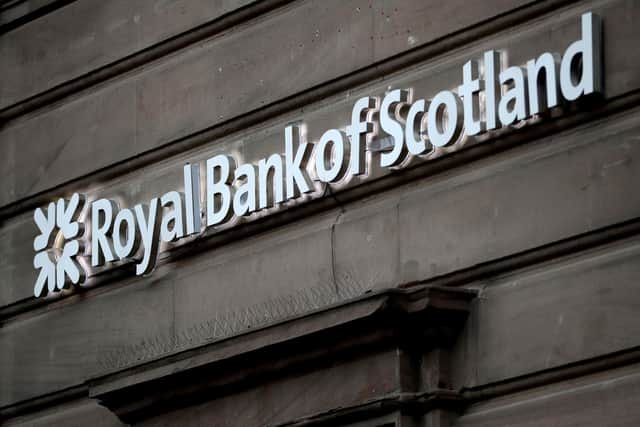Royal Bank of Scotland takes aim at net zero goal after launching green loan support for SMEs
The launch of the new products from RBS follows the announcement of parent NatWest Group’s £100 billion “climate and sustainable funding and finance” ambition and the recent publication of its Springboard to Sustainable Recovery report.
The green loans and green asset finance are due to be open for applications from February 18.
Advertisement
Hide AdAdvertisement
Hide AdTogether, these propositions aim to help qualifying small and medium-sized enterprises (SMEs) finance the business assets to support their sustainability ambitions, such as solar panels, electric vehicles or heat pumps on commercial buildings.


RBS said businesses do not need to be existing customers to apply, and the green loan proposition will be available through Royal Bank of Scotland, while the green asset finance will be available through the Lombard brand.
Royal Bank of Scotland has also committed an investment of £1 million for SMEs across the next four years, in collaboration with the Edinburgh Climate Change Institute (ECCI).
The ECCI is a University of Edinburgh programme and a low-carbon hub, utilising expertise and data to help achieve Scotland’s sustainability and net zero ambitions.
Judith Cruickshank, regional managing director Scotland, NatWest Group, said: “Climate change is one of the biggest global challenges we face today, and Scottish SMEs have a critical role to play in helping the UK realise its green ambition.
“The reality is that while SMEs want to help by reducing emissions, they face many barriers doing so such as limited access to information, funding and training.
“We’re working to remove these barriers with concrete actions - providing incentives, such as loans and asset financing that aim to support sustainability ambitions, and aim to benefit businesses whether they bank with us or not.
“Today we’re announcing our ambition to stand by Scottish small businesses to help them reduce emissions and explore the opportunities that a move towards a green economy brings for us all. We cannot underestimate the power of small changes to make a big impact.”
Advertisement
Hide AdAdvertisement
Hide AdNew research from RBS reveals that more than a third (34 per cent) of UK SMEs say access to more resources, such as funding, would make the biggest impact in helping companies to reduce carbon emissions.
The research also found that reducing environmental impact ranks in 45 per cent of SMEs’ 2022 priorities, 44 per cent are already actively making changes to their businesses to go greener, while 37 per cent know their customers care about the environmental impact of their business.
Last autumn’s Springboard to Sustainable Recovery report found that the UK’s six million SMEs can achieve 50 per cent of the UK’s net zero decarbonisation goals worth an estimated £160bn in revenue opportunity.
However, the study found that less than 10 per cent of small and medium-sized businesses currently see climate action as a source of future growth, and that SMEs lack access to support through funding, knowledge and training.
A message from the Editor:
Thank you for reading this article. We’re more reliant on your support than ever as the shift in consumer habits brought about by coronavirus impacts our advertisers. If you haven’t already, please consider supporting our trusted, fact-checked journalism by taking out a digital subscription: www.scotsman.com/subscriptions
Comments
Want to join the conversation? Please or to comment on this article.
